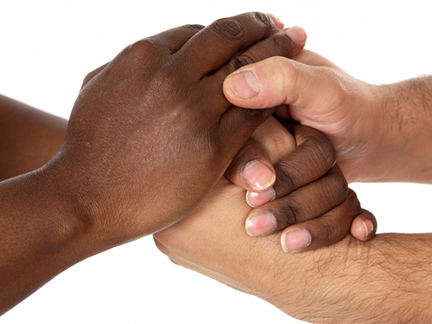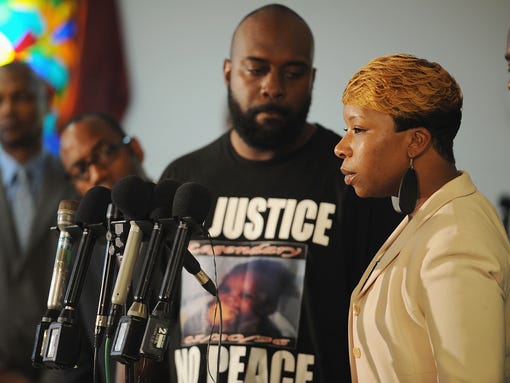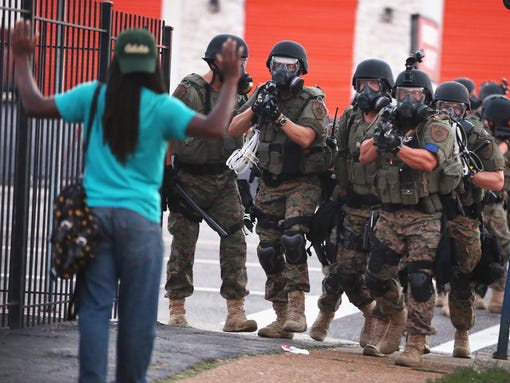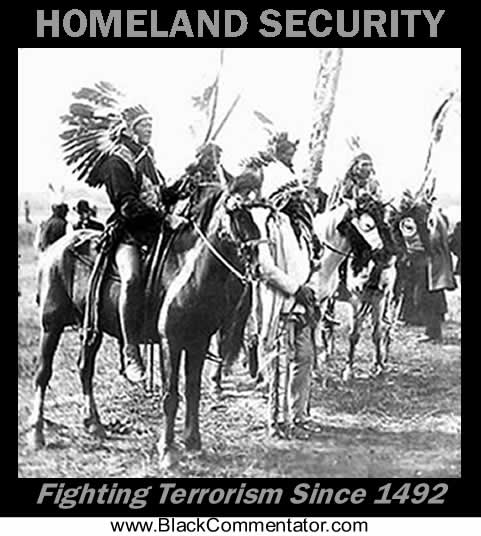The debate surrounding the death of Michael Brown is still raging. Tempers have flared on both sides and many opposing points have been thrown into the arena. I have had many thoughts throughout this ordeal, but have refrained from posting most of them. However, as I continue to watch reactions and comments from my white friends, I feel a need to point out that most whites (particularly white Christians) have missed the heart of the matter.
When this tragedy and the subsequent protests first began, I blogged and made a prediction about how most white Americans would react (read it here). Towards the end I predicted that "many whites will minimize or dismiss charges of racism" and that this would be the most common response for white Americans to Ferguson. In particular, I noted that these same people would prefer to focus on the rightness or wrongness of police action.
Sadly, the 2 weeks that have passed since that blog have proved me more or less correct. As I scan my Facebook feed, more than half of the shared articles about Ferguson from my white friends follow this trajectory. Most of these articles amount to defaming the character of Michael Brown and attempting to defend Officer Wilson's choice to use deadly force. To summarize most of these articles--Mr. Brown stole cigars from a convenience store, was a trouble-maker, got stopped by police and assaulted this police. Officer Wilson, then fearing for his life, shot Mr. Brown to death after sustaining serious injuries to his face.
However, all of this ultimately misses what is perhaps the most important takeaway from this whole tragedy. As I mentioned in my first article, such discussion sidetracks us from more important questions. Why is the black community so upset? Why are there charges of racism every time a black teen is gunned down by police? Why are so many whites silent about this story when so many African-Americans are speaking out? Perhaps the key thing we should take away from this story is that there are still serious race issues in America. Furthermore, the black community is willing to talk about this race relation problem while the white community, by and large, is not (perhaps we can call this racist?).
So, to get back down to the bottom line: An unarmed, black teen is dead. Sadly, those articles that attack Mr. Brown's character or reputation completely ignore this point. Even if we accept the most damning account of Michael Brown's character, it still does not justify his death. If he did shoplift (an offense the responding officer supposedly did not even know about at the time), jaywalk, and assault an officer, these are still not crimes deserving of the death penalty. And even if they were, Mr. Brown still would have been entitled to due process and a trial. So, no matter what, it was AN INJUSTICE for this teen to be gunned down in the street, regardless of his character or actions.
What worries me about these articles attacking his character is that they have a nasty implication. First, it implies we do not really believe in America's justice system (and believe too strongly in violence). We do not believe in due process or human rights. If there is a criminal, we don't really care if something bad happens to them. They deserved it, right?
Or, at least we don't care if the criminal/victim is black. When we focus on the possible flaws in Mr. Brown, instead of grieving with a family affected by injustice, we unconsciously imply that the death of a black man does not really matter. We show no pain or remorse because deep down in our minds, he wasn't a person.
Which brings me back to the core issue many whites are overlooking: race relations. When many whites look at the protests and the angst among black Americans, they just shake their heads in confusion. They call the protests immature. They talk about "playing the race card" or "reverse racism." They look for stories of whites teens who were killed by police to dismiss race as an issue.
But race is the issue.
Let's step back beyond the actions of Officer Wilson. At this point, I don't care if his decision to shoot was motivated by racism or by a genuine effort to defend his life in the line of duty. I don't know the answer to that, and no one besides Officer Wilson probably will. However, in all our efforts to vindicate Officer Wilson, white Americans have ignored the ultimate reason why the black community is so upset. It's not because one single black teen was shot. It's because there is a whole system of racism that continues to work against them.
And so, the character of Michael Brown doesn't even really matter. What white Americans should have been thinking and talking about is why so many were so quick to criticize the situation. And the answer is because the death of Michael Brown is too similar to countless injustices the black community faces on a daily basis. Whites continue to have more power and influence than blacks. Whites continue to be less affected by poverty. Whites don't have to have talks with their sons about how to respond to police officers to avoid confrontation. Whites don't get stopped by police and searched for no good reason. White men don't worry about being viewed as suspicious simply because of the color of their skin. The black community isn't upset just because one teen got killed. They aren't upset because they are trying to be racist back to whites. They are upset because this death carries too many echoes of continuing racism and the white community persists in ignoring racism altogether.
So going forward I pray that my white friends and readers will stop criticizing Michael Brown or attempting to defend Officer Wilson. Instead, I pray they would do two things. First, I hope they will offer sympathy and grief to a family and neighborhood who lost a teen, remembering that this death was an injustice no matter the exact circumstances.
Second, I pray that more white will pause to ask why many black Americans are so upset. Withhold judgment and protest and instead listen. Listen to the countless stories of profiling, discrimination, suffering, and racism. Racism may not be as blatant as 60 years ago, but it is still very present. Our blindness to racism may not be a willful blindness, but it is a blindness nonetheless. The worst thing whites can do is minimize it or ignore it. For, if we continue to ignore it, there will only be more Michael Browns and more protests.








